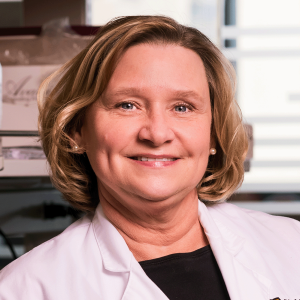Human Health

June 30, 2021
Jaapna Dhillon
Educational background Ph.D., Purdue University…

June 30, 2021
Victoria Vieira-Potter
The Vieira-Potter laboratory studies sex differences in adipose tissue metabolism, and how sex hormones (namely, estrogen) and exercise affect fat cell metabolism. This is done via use of a variety of animal models and state-of-the-art molecular tools. Our goal is to determine adipose (i.e., fat) tissue-specific mechanisms by which hormone shifts and obesity affect cardiometabolic disease risk, and to discover novel interventions to mitigate this risk by specifically targeting adipose tissue. Our work has demonstrated that female hormone loss adversely affects adipose tissue both directly, via loss of the protective effects of estrogen receptor signaling, and indirectly, via brain-specific mechanisms…

June 30, 2021
Catherine A. Peterson
Catherine Peterson, R.D.N., Ph.D. is a nutrition scientist and registered dietitian. She is an associate professor in the Department of Nutrition and Exercise Physiology (NEP) at the University of Missouri. Peterson earned her PhD in Nutritional Sciences at the University of Illinois at Urbana-Champaign and was a NIH Post-doctoral trainee in the Department of Nutritional Sciences at the University of Wisconsin-Madison. Peterson has also worked as principal nutrition scientist for a major infant formula company. Her expertise is in the role of micronutrients and other dietary factors in disease prevention. She has published original research on the effects of variable…

June 30, 2021
Jaume Padilla
Dr. Jaume Padilla is a professor in Nutrition and Exercise Physiology at the University of Missouri with a joint appointment at the Harry S. Memorial VA Hospital. His research program focuses on understanding the mechanisms linking metabolic and cardiovascular disease. A primary focus is the study of mechanisms causing endothelial insulin resistance and vascular dysfunction in the context of physical inactivity, obesity, and type 2 diabetes. A detailed understanding of the precipitating factors and mechanisms underlying the defects in vascular insulin actions is critical for the development of therapeutic strategies aimed at improving glycemic control and cardiovascular outcomes. Dr. Padilla’s research, funded by…

June 30, 2021
Elizabeth J. Parks
Elizabeth Parks is a Professor of Medicine in the Department of Nutrition and Exercise Physiology and Department of Medicine, both in the School of Medicine at the University of Missouri. She also serves as Associate Director of the Clinical Translational Science Unit and as an investigator in the university’s NextGen Precision Health Initiative. Her research focuses on understanding how the food we eat is processed in the body to benefit health and how it can also contribute to the progression of diseases such as obesity, pre-diabetes, and diabetes. The major research contributions of the Parks Lab emanate from the development…

June 30, 2021
Jill Kanaley
Educational background Ph.D., University of Illinois M.S., University of Illinois BA-BPHE, Queen’s University Courses taught NEP3850W: Physiology of Exercise NEP4940: Internship in Exercise Physiology NEP8501: Advanced Topics in Nutrition and Exercise Physiology NEP8850: Advanced Exercise Physiology NEP8860: Exercise Endocrinology NEP8870: Exercise Metabolism NEP8095: Master’s Internship…

June 29, 2021
Pam Bruzina
Educational background Ph.D., University of Wisconsin-Madison…

Sep. 7, 2019
Steven R. Van Doren
Dynamic biological assemblies are strategic and fascinating. We have been exploring molecular recognition by flexible proteins and automatic tracking of changes in complex spectra and medical images. Molecular recognition by proteins with intrinsic disorder A pivotal virus-membrane interaction: Coronaviruses use a region of Spike to merge the viral envelope with the host cell membrane. We continue to be interested in the nature of the lipid interactions with this fusogenic region of Spike. Our articles reported (i) the NMR structure of the fusion peptide in a simple membrane-mimicking environment and (ii) its insertion and distortion of the simple membrane mimic via…

Sep. 5, 2019
Charlotte L. Phillips
To investigate the regulation and structure/function of extracellular matrix to tissue specific expression in the pathogenesis of inherited connective tissue disorders. Type I collagen, the predominant structural protein in many tissues provides strength to bone and tendon, integrity to skin, major organs and blood vessels, and support for mineralization of bone and teeth. Abnormalities in type I collagen synthesis and structure are associated with several acquired and inherited connective tissue disorders (osteogenesis imperfecta, Ehlers-Danlos Syndrome and osteoporosis). Investigating the pathogenesis of the different inherited connective tissues disorders and identifying the specific mutations in the type I collagen genes gives us…

Sep. 2, 2019
Gary A. Weisman
Nucleotide receptors (P2 receptors) are present in nearly all cells and tissues where they mediate diverse functions including the regulation of platelet aggregation, muscle contraction, neurotransmission, insulin secretion, epithelial ion transport, wound healing and cell growth. We have isolated the first human P2 receptor gene and expressed it in mammalian cell lines that normally lack this receptor. These expression systems have enabled us to identify and purify the P2 receptor protein and current research is directed towards investigating structural features of the receptor that affect its functions. We have cloned or obtained 11 different P2 receptor subtypes belonging to 2…
- « Previous
- 1
- 2
- 3
- 4
- Next »